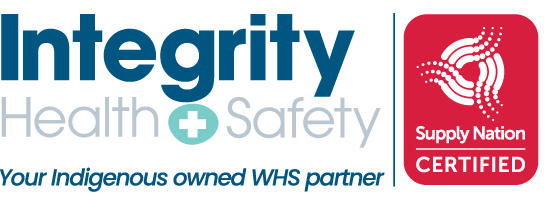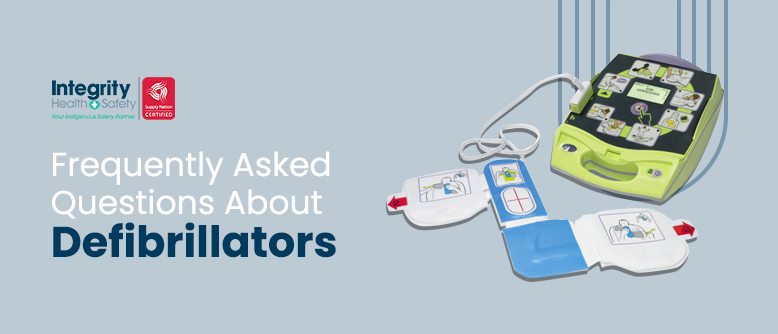Sometimes we feel that we and those around us are invincible. Unfortunately, that is not always the case. Fatal health complications like a sudden cardiac arrest for example can happen to anyone, irrespective of age, background, gender, and health levels.
Sudden Cardiac Arrest Australia statistics
In fact, according to the Victor Chang Cardiac Research Institute, around 20,000 Australians suffer a cardiac arrest outside of hospital each year and 90% of them die.
And as per the latest data from The Heart Foundation, the baseline risk in Australia for people under 35 is 1.3 per 100,000 people per year, with 15% occurring either during or immediately after exercise.
It is daunting to think that something like this can occur at any time, anywhere, indiscriminately — parents, siblings, colleagues, teammates, strangers, or friends.
While we cannot stop this from happening, it pays to be ready when the situation calls for it. A defibrillator nearby can help increase the chances of survival of a SCA victim by more than 70%!
At Integrity Health & Safety, we offer defibrillators, or defibs as we call it, that are fit to use at home, workplace, and in your vehicle, caravan, or boat.
If you’re thinking of buying one and need more information, here are some frequently asked questions about defibrillators Australia.
FAQs on Australian defibrillators
What are defibrillators?
A defibrillator delivers electric shocks to the heart to restore its normal rhythm. This treatment is necessary when someone has a life-threatening irregular heartbeat called arrhythmia, particularly, ventricular fibrillation (VF) which could result in a sudden cardiac arrest (SCA).
What are automated external defibrillators (AED)?
AED is a medical device that stands for Automated External Defibrillator. AEDs are portable defibrillators that cleverly analyse the rhythm of the patient’s heart before deciding whether to administer a calculated shock to restart the heart.
These automatic defibrillators are used on victims of sudden cardiac arrest and are often found in public areas such as schools, gyms, offices, sports clubs, and shopping centres. AEDs are designed to be ready for bystander action.
How do defibrillators work?
A cardiac arrest is caused by an irregularity in the electrical activity in the heart’s ventricular muscle, referred to as ‘fibrillation’. When fibrillation occurs the heart cannot effectively pump blood around the body which prompts the heart to go into cardiac arrest.
A defibrillator gives a burst of electric energy to the heart which re-establishes the electrical pulses and allows the heart to beat properly again.
When to use a defibrillator?
You will know when to use a defibrillator if a person has collapsed on the ground and is unable to respond or breathe.
How much are defibrillators?
How much do defibrillators cost? The price of defibrillators will depend on the make and model. Here at Integrity Health & Safety, the defibrillators and defibrillator bundle packs we stock vary in price. Prices start from as little as $1435.
Can defibrillators kill you?
No, defibrillators save lives. They deliver a shock only when one is needed — meaning to say, there are very little dangers involved when using an AED. The chances of harm being caused is extremely low, and automated external defibrillators are designed with ease of use in mind.
Do defibrillators restart the heart?
Unfortunately, it doesn’t. Restarting a heart once it has completely stopped is one of the biggest myths associated with AED defibrillators — but this is simply untrue.
Can defibrillators restart a stopped heart?
What it does is identify any irregular fibrillating heart rhythms (e.g., Sudden Cardiac Arrest) and then shock the heart so that it can return to its natural rhythm. Defibrillators don’t look for a ‘flat lined heart ‘ and can’t shock it back to life
How long do defibrillators last?
Automated external defibrillators come with battery packs that usually last 5-7 years. If the unit is used frequently, the battery pack may have to be replaced more often. The AED will inform the user when the battery pack needs to be replaced.
As for the AED itself, it can last anywhere from 10-15 years.
How often do defibrillators need to be checked?
AED accessories like battery and electrode pads need regular replacing. Batteries can last 60+ months and electrode pads 18-60 months depending on the model. However, all devices are different and you should confirm expiration dates on all disposables.
The AEDs we sell have audible and visual indicators that indicate the status of the AED.
Are defibrillators mandatory in the workplace Australia?
If you’re a business owner, you may be wondering are defibrillators a legal requirement in Australia?
Having a defibrillator fitted in your premises is not a legal requirement. However, it is highly recommended by the Australian Resuscitation Council. It is good practice for businesses to have an AED within a one-minute brisk walk or run of any spot in their building or parking lot.
Read: Workplace First Aid: Top 5 things you should have at work
Should I wait for a medical professional to operate the AED?
Anyone can use a defibrillator as the AED will provide clear, concise verbal instructions when switched on — it is just a matter of following the instructions provided by the unit. However, AED training is also recommended to give the user greater confidence.
Immediate care is a must for a SCA victim, and waiting for medical professionals to arrive means reducing the survival rate of the victim with every minute that passes.
Got more questions?
If you are interested in learning more about defibrillators and how they work, Integrity Health & Safety offers a range of public and private training courses including first aid, CPR and more to help you get started.
Our team includes Intensive Care Paramedics and Nurses that work within specific frameworks, such as ISO standards and best industry practice. We are recognised for tailoring our training to suit each workplace and providing relevant, engaging, hands-on training based upon real-life situations.
Our training courses are conducted under the auspices of Healthcorp RTO number 91222.




Comments are closed.